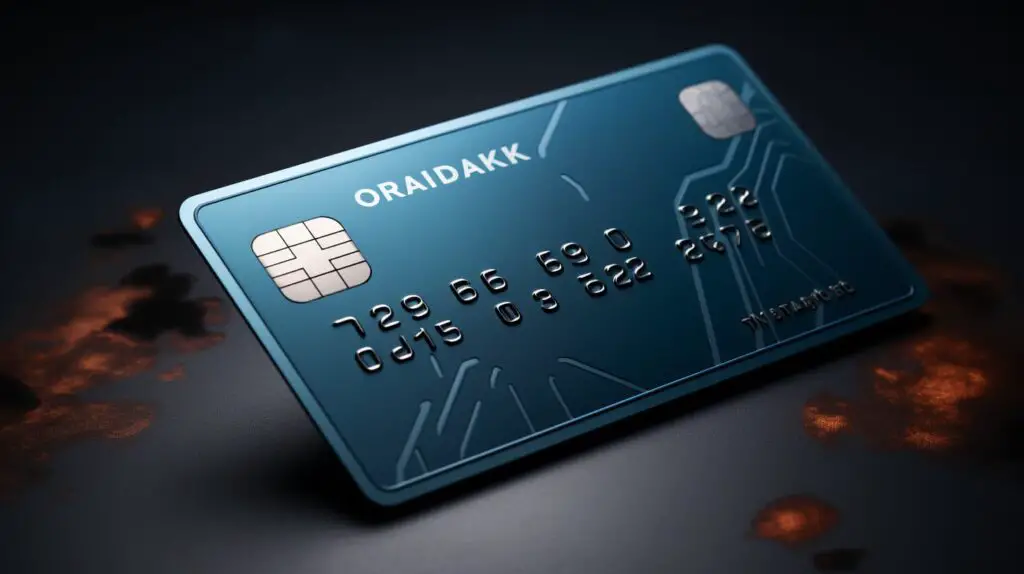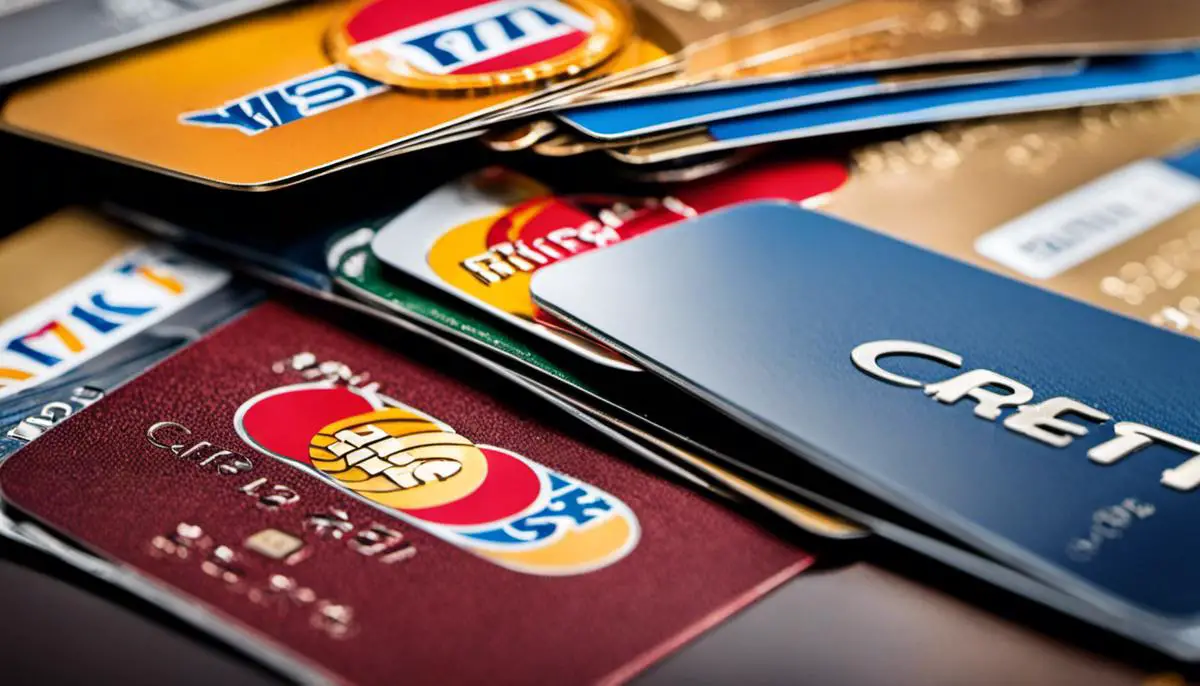In a fast-paced digital age, credit cards have become an indispensable financial tool for many. Whether making online store purchases, booking a holiday, or handling unforeseen expenses, credit cards offer convenience and flexibility. However, their advantages go hand in hand with certain responsibilities.
In this discussion, we delve into the fundamental aspects of credit cards, unraveling their role, function, and the merits they bring to our lives. You’ll be able to follow our step by step guide on your credit card account setup process. We shed light on interest rates, credit limits, and reward systems while emphasizing responsible usage to evade debt. Furthermore, we touch upon the qualifying criteria for obtaining a credit card which encompasses credit score, income requisites, and financial history.

Understanding Basics of Credit Cards
Understanding Basics of Credit Cards
A credit card is a plastic card issued by a bank or a financial institution, which allows you to borrow funds to pay for goods and services. The borrowed funds must be paid back within a stipulated period of time. You can use a credit card to make purchases, for cash advances, and for transferring balances from one card to another.
How Credit Cards Work
Each time you use a credit card, you’re borrowing money that you promise to pay back. Unlike a debit card, which pulls funds from your checking account, a credit card uses the issuer’s money. You will receive a monthly bill for the purchases you’ve made using the credit card and then you have the option to pay the balance in full, pay a part of it, or pay the minimum amount due.
Interest Rates
Interest rates on credit cards are known as Annual Percentage Rate (APR). This is the price you pay for borrowing money and it ranges between 12% to 25%. The interest is calculated on the remaining balance, so if you pay your bill in full each month, you won’t be charged any interest.
Credit Limits
A credit limit is the maximum amount of money you can charge to your credit card. This limit is determined by your credit card issuer based on your credit score, income, and debt. It’s important to keep your credit utilization low, which means not using your entire credit limit, to maintain a good credit score.
Rewards Systems
Many credit cards offer rewards programs. These programs give you points, miles, or cash back for your purchases. The rewards can be redeemed for a variety of things like travel, merchandise, or cash back. The specific reward structure varies from card to card, so choose a rewards card that matches your spending habits to maximize benefits.
Credit Card Responsibility
Using a credit card responsibly means making timely payments, staying under your credit limit, and not taking more credit than you can afford. By doing so, you avoid going into debt and maintain your credit score. It’s essential to read your credit card agreement carefully to understand the fees, interest rate, grace period (time period when no interest is charged), and other terms.
Avoiding debt with credit cards involves preparing a budget, tracking your spending, and avoiding unnecessary purchases. Aim to pay off the balance in full each month to avoid interest charges. If you can’t pay in full, at least make the minimum payment to avoid late fees and negative impact on your credit score.
Understanding how credit cards work can help you leverage their benefits while avoiding the risks. By using credit cards responsibly, you can build a strong credit history which is beneficial in securing loans or even renting an apartment.

Criteria for Getting a Credit Card
Criteria for Getting a Credit Card
In order to be approved for a credit card, a number of basic eligibility criteria must be met. These typically include age, residency, and income. Generally, applicants should be at least 18 years old and have a steady source of income. Further, they should be a resident of the country where the credit card is being issued.
Credit Score: A Key Factor in Credit Card Approval
One of the significant factors that card issuers consider is your credit score. This is a numeric representation of your creditworthiness, and it is typically based on your credit report obtained from credit bureaus. An excellent credit score often makes you a more attractive borrower to potential lenders, increasing your chances for approval. Generally, a score of 670 or above is considered good on a scale of 300-850.
Income Requirements for Credit Card Approval
Another crucial factor lenders take into consideration is your income. Credit card issuers want assurance that you have enough income to pay back any debt you might incur. This includes not only your salary but also other forms of income such as bonuses or rental property income. While there is no set income requirement, a higher income generally improves your chances of approval.
Importance of Financial History
Your financial history also plays a significant part in the credit card application process. Lenders will look at your payment history, the length of your credit history, your current level of debt, and the type of credit you have used in the past. A good financial history, with regular payments and a low credit balance, can demonstrate that you are a responsible borrower.
Common Reasons for Credit Card Application Denial
Common reasons for credit card application denial include a high level of existing debt, low income, and an insufficient credit history. Additionally, recent delinquencies, or late payments, can also lead to a denial of application.
Improving Chances for Credit Card Approval
To boost your odds of getting approved, ensure you maintain a good credit score by making timely payments and keeping your balances low. Additionally, only apply for newwhen necessary as multiple credit card credit inquiries can negatively impact your score. Keeping your income information updated can also improve your likelihood of approval.
Remember, every card issuer has different requirements. Make sure to do your research before applying for a credit card. Review your credit scores and reports regularly and be proactive about fixing any errors you find. This will keep you in the best possible position when it comes to credit card approval.

Setting Up a Credit Card Account
Choosing the Right Card
Selecting the right credit card is the foremost step in setting up a credit card account. You should be familiar with your financial goals, spending habits, and needs before choosing a credit card. Look into different types of cards, such as rewards cards, low-interest cards, or secured credit cards, and consider the benefits they offer. Major factors to consider while choosing a credit card include Annual Percentage Rate (APR), annual fees, credit limit, benefits, and any additional charges.
Application Process
Once you have selected the card, you can typically apply online, by phone, or in person. You will need to provide personal information, such as your full name, address, Social Security Number, date of birth, and employment details. It’s crucial to ensure that all information is accurate and updated to avoid any issues with approval.
Understanding Terms and Conditions
After applying, take your time to thoroughly read through the card’s terms and conditions before accepting. This often lengthy document contains critical information about your APR, fees, grace periods, and penalties. Pay special attention to late payment fees, interest charges, and how your credit limit is determined. Understanding these terms will help avoid unnecessary costs and manage your account effectively.
Online Account Management
After your card application gets approved, you will typically be given the option to manage your account online. Here, you can check your balance, view past transactions, make payments, and update your personal information. It’s smart to regularly check your account to promptly spot any suspicious transactions or discrepancies.
Security Best Practices
Securing your credit card account is of utmost importance. Create a unique, strong password for online access, and change it periodically. Also, enable multi-factor authentication, if available, for added security. Avoid sharing card details over phone calls or emails, especially with strangers. Always ensure you are on your bank’s secure website before entering your card information.
Understanding Bill Payments
Your credit card bill will generally include your total balance, minimum payment due, due date, and a list of transactions. You can choose to pay off the total balance or the minimum payment, but understand that paying only the minimum can accrue interest. Paying your bills on time will help avoid late fees and maintain a good credit score. It’s convenient to set automatic payments or reminders to ensure you don’t miss a payment date.

Upon familiarizing ourselves with all these facets, we then navigate through the process of initiating a credit card account. We draw your attention towards picking an apt credit card that fulfills your needs, decoding the jargon of terms and conditions, and mastering the online account management.
A prime focus is laid on security protocols and timely bill payments to ensure you safeguard your financial wellness. Arming yourself with this knowledge, you are well equipped to dive into the world of credit cards, understanding their perks and pitfalls, and maneuver them to your advantage.



